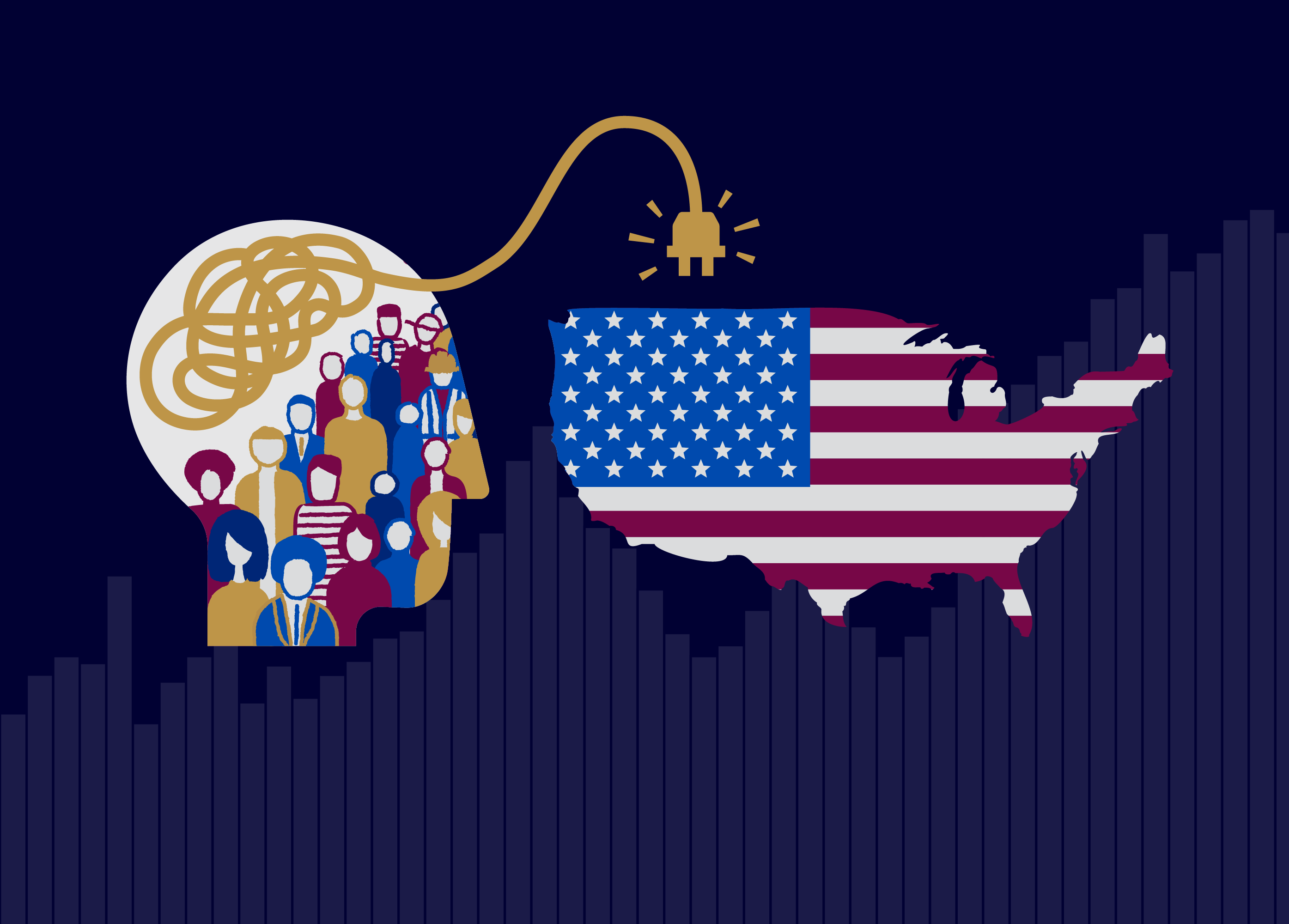Behavior and Democracy Policy
From a behavioral standpoint, democracy policies focus explicitly on strengthening, sustaining, or weakening “we” [the people] through policies and programs (products), systems and practices (processes), and values (qualities). Democracy policies can focus on aspects of representation, identity, fair treatment, social and civil status, information ethics and quality, voice (inclusion), and government relations; all of which require an understanding of human and social behavior.
Behavioral fields and tools utilize psychological and individual level insights to inform and improve the policy interventions, especially the analysis, development, and implementation of public policies. We contribute to evidence-based policymaking by understanding human behavior, public opinion, motivations and decision-making, and other social dynamics to assess the quality and identification with democracy and policies that affect it.
A large set of policy questions revolve around the need for policies that strengthen the “We” in the American public. What ideas and beliefs about social and political groups get in the way of collaborative governing? Can the public articulate the value of democracy beyond voting? To what extent does the public think about democracy at the local and state levels, relative to the federal level? How powerful are motivations to both bolster one’s civic identify while simultaneously optimize its distinctiveness? Can civic assemblies help bridge belonging and information? What economic incentives create new markets for democracy policy at the local and state levels?
Behavioral understandings of democracy policy can help design policies that are more likely to be accepted and effective. Behavioral researchers can identify, test, and share interventions and policies that address issues by understanding the underlying psychological factors that can promote shared well-being and reduce prejudices. Lastly, behavioral democracy policy can study how people form opinions about public policy issues and how to build trust in government and institutions, which can lead to more effective program designs.

POLITICAL PSYCHOLOGY OF AMERICAN DEMOCRACY (PPAD) PROJECT
